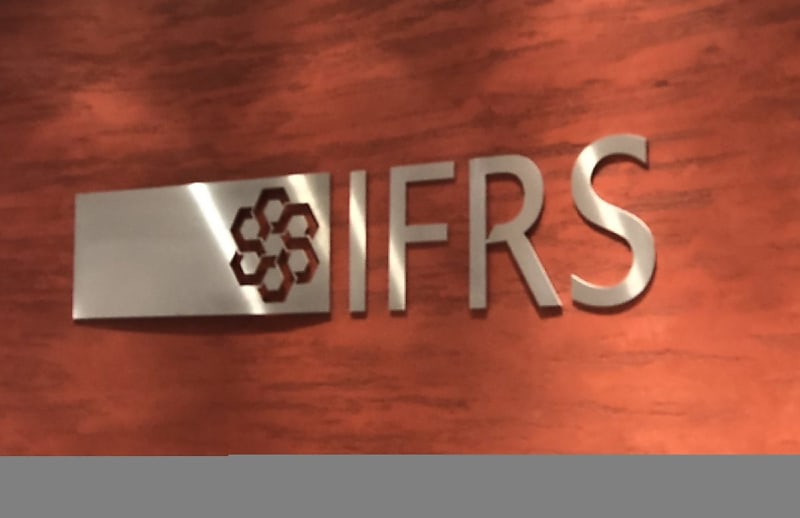ISSB standards to provide clarity for businesses
BusinessWhile they may not be the primary target of the sustainability framework, SMEs must be aware of the impact they could have as part of a supply chain.

The release of the International Sustainability Standards Board (ISSB) inaugural standards, IFRS S1 and S2, will provide greater clarity for businesses, according to BDO’s ESG and sustainability leader and advisory partner Aletta Boshoff.
Ms Boshoff said the announcement of the standards provided businesses with an understanding of what they must meet moving forward.
“It means that entities in Australia, especially our large entities, large emitters, listed entities say we know this is coming, we’ve got an idea of the timeline, we’ve actually got issued standards, that’s good for them, they can plan,” said Ms Boshoff.
“So I think there’s more certainty than we’ve ever had. The only uncertainty at the moment is the implementation date in Australia, but we’ve got an idea.”
The standards, IFRS S1 — general requirements for disclosure of sustainability, related financial information — and IFRS S2 — climate-related disclosures, both aimed at improving trust and confidence in business disclosures about sustainability.
The objective of the IFRS S1 standard was to require an entity to disclose information about its sustainability-related risks and opportunities that would be useful to users of general financial reports in making decisions relating to providing resources to the entity.
The objective of the IFRS S2 standard was to require an entity to disclose information about its climate-related risks and opportunities that would be useful to users of general-purpose financial reports in making decisions relating to providing resources to the entity.
Member of the Global Accounting Alliance, CA ANZ said the accounting profession would play a key role in the effective implementation of the new standards.
“The release of ISSB’s first two standards means Australian companies have clarity over the requirements and can begin preparing for the disclosures,” said CA ANZ sustainability and business reform leader Karen McWilliams.
“The ISSB have recognised the initial focus of investors on climate disclosures and their transitional reliefs will enable companies to report in line with IFRS S2 in the first year of reporting.”
In its climate-related financial disclosure consultation paper, which was released earlier this week, the Treasury said it would look to undertake a transitional period of its disclosure requirements from 2024–25 to 2026–27.
It said only entities classed as group one or two businesses — that have over 250 employees, or have consolidated gross assets at the end of the financial year of the company and any entities it controls is $500 million or more, or the consolidated revenue for the financial year of the company and any entities it controls is $200 million or more — would be subject to mandatory disclosure requirements in the transitional phase.
Despite this Ms Boshoff said SMEs would still be required to improve their ESG targets due to being part of the supply chain of group one or group two businesses.
“The only way those entities can reduce their carbon footprint and can implement decarbonisation strategies is if they require all the entities in their supply chain to go on this journey with them,” said Ms Boshoff.
“SMEs will be tapped on the shoulder and told you’re in our supply chain, this is our carbon footprint, we’ve got a decarbonisation strategy, you contribute to our carbon footprint, what are you doing, have you set a target, are you measuring, that’s the next logical thing that’s going to happen.
“This is another push for SMEs to realise that if mandatory reporting comes in at the listed entity level the next step is that those listed entities will reach out to everybody in their supply chain.”
The ISSB’s recommendation was for the standards reporting periods to begin on or after 1 January 2024, however, in the Treasury’s latest consultation paper, which requires submission by 21 July, the government said it would look to issue the Australian climate-related disclosure standards from quarter two 2024.
Chief executive of the Business Council of Sustainable Development Australia, Andrew Petersen, said the standards were the initial steps in creating clarity and alignment between different disclosure regimes.
“The ISSB’s new sustainability disclosure standards mark the first major steps in creating alignment between differing sustainability disclosure regimes and helping meet investor information needs on sustainability-related risks and opportunities,” said Mr Petersen.
“The new comprehensive reporting standards will be transformative for Australian business and capital markets in reporting on their ambition, action and accountability in their ESG data.
“By adopting the ISSB’s standards, companies will be better equipped to meet the growing expectations of investors, regulators, and public at large.”




